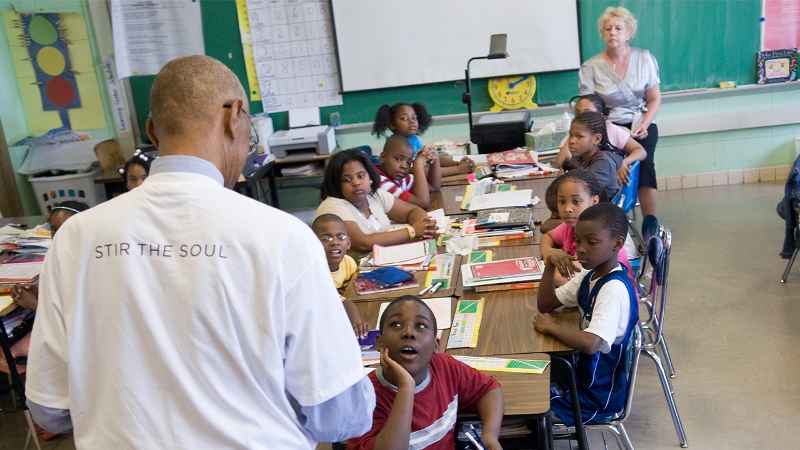Tailored Primary Science Tuition Singapore for Your Child’s Success
Tailored Primary Science Tuition Singapore for Your Child’s Success
Blog Article
Checking Out the Various Training Methods in Main Science Education And Learning Today
Inquiry-based understanding, hands-on experiments, and the combination of technology are redefining just how teachers involve young minds. Additionally, joint techniques and set apart guideline are being employed to cater to the varied requirements of trainees, enhancing both involvement and understanding.
Inquiry-Based Knowing
Inquiry-Based Learning (IBL) is a pedagogical strategy that urges trainees to explore clinical concepts via wondering about, examination, and hands-on trial and error. This technique stresses the duty of students as active participants in their learning, promoting important thinking and analytic abilities. By engaging with real-world questions, pupils become interested and motivated, which improves their understanding of clinical concepts.
In IBL, educators function as facilitators, guiding pupils as they browse their questions instead of delivering details directly. This student-centered approach enables distinction, fitting numerous discovering rates and designs. Students establish skills in creating hypotheses, designing experiments, and evaluating data, which are vital for scientific proficiency.
Additionally, IBL promotes cooperation amongst pupils, encouraging them to share searchings for and concepts. This collective inquiry promotes social abilities and a feeling of neighborhood within the class. Additionally, the process of inquiry urges durability, as students learn to accept failure as a stepping rock towards understanding.
Hands-On Experiments
Hands-on experiments are a vital part of effective scientific research education and learning, complementing the concepts of inquiry-based knowing. These experiments enable students to engage directly with clinical ideas, fostering a much deeper understanding via experiential learning. By adjusting products and observing end results, young learners can grasp abstract concepts in tangible methods.
Such activities advertise important thinking and problem-solving abilities, as pupils hypothesize outcomes, conduct experiments, and analyze results. This process encourages them to ask questions, refine their understanding, and create a scientific state of mind. Moreover, hands-on experiments can be customized to varied understanding designs, ensuring that all trainees have the possibility to involve meaningfully with the web content.
Furthermore, hands-on experiments typically urge partnership among peers, advertising team effort and communication skills. Operating in teams enables pupils to share ideas, review searchings for, and gain from one another, which boosts their general academic experience.
Integrating hands-on experiments into the key science educational program not just enriches the learning setting however also cultivates a long-lasting passion in science. By proactively joining their education and learning, trainees are more probable to establish an interest for scientific query that expands beyond the classroom.
Innovation Integration
Incorporating technology right into key scientific research education has come to be progressively necessary in promoting student interaction and boosting discovering end results. Using digital tools, such as interactive simulations, digital laboratories, and academic software, gives trainees with possibilities to discover scientific ideas in cutting-edge ways. These sources promote a much deeper understanding of intricate subjects by allowing students to picture and adjust variables that would be not practical in a conventional classroom setting.
Additionally, modern technology combination encourages customized learning experiences. Pupils can progress at their own rate, revisiting challenging ideas through multimedia sources, which cater to different knowing designs. This flexibility not just sustains specific development however additionally grows a sense of autonomy in students.
Additionally, modern technology works as a bridge to real-world science, attaching trainees with existing research study and specialist payments. Accessibility to on the internet data sources and scientific journals widens trainees' viewpoints on scientific query and cultivates vital believing abilities.
Collaborative Discovering
Collective knowing plays an essential role in main science education by cultivating teamwork and communication skills amongst students. This method urges learners to work together, share understanding, and participate in analytic, which boosts their understanding of scientific concepts. By joining team tasks, trainees find out to express their ideas, listen to varied point of views, and discuss solutions, all of which are vital skills in both real-world and academic contexts.

Research suggests that collaborative knowing can lead to boosted motivation and involvement in scientific research topics, as pupils discover pleasure in shared experiences (primary science tuition Singapore). Additionally, this approach prepares students for future collaborative undertakings, furnishing them with the abilities necessary for efficient team effort in college and expert atmospheres. Ultimately, embracing joint discovering in main scientific research education can significantly enhance the understanding experience and promote a much deeper understanding of scientific inquiry
Differentiated Direction

Differentiated guideline can show up in different methods, such as varying the the original source web content, procedures, or items of learning. Educators may use tiered assignments that provide varying degrees of intricacy, permitting trainees to function at their corresponding preparedness levels. Additionally, adaptable organizing strategies can assist in collaboration among trainees with different abilities, cultivating peer knowing.
Assessment plays a critical role in this strategy, as it educates guideline and aids educators recognize each student's unique needs. Developmental evaluations, such as monitorings and tests, can assist instructors in adjusting their methods to improve discovering results. primary science tuition Singapore. Eventually, by carrying out differentiated guideline in main scientific research education, instructors can grow an extra effective and fair discovering setting, encouraging all students to reach their complete potential in understanding scientific sensations
Conclusion
In recap, the diverse mentor methods in key scientific research education, including inquiry-based knowing, hands-on experiments, innovation assimilation, collaborative learning, and set apart instruction, jointly add to an extra effective knowing setting. These techniques promote crucial reasoning, problem-solving abilities, and a much deeper understanding of scientific ideas. By applying these methods, educators can create encouraging and engaging class that address the diverse demands of trainees, ultimately fostering a lifelong interest in science and enhancing scholastic achievement.
Inquiry-Based Understanding (IBL) is a pedagogical strategy that motivates pupils to discover scientific ideas through questioning, examination, and hands-on experimentation.Collaborative discovering plays an essential function in key scientific research education by fostering teamwork and interaction abilities amongst trainees.Research study next indicates that collaborative learning can lead to increased inspiration and engagement in scientific research topics, as trainees find enjoyment in shared experiences.In fostering a comprehensive understanding environment, differentiated direction arises as an essential technique to accommodate the diverse requirements and abilities of pupils in key science education and learning. Eventually, by applying set apart instruction in key scientific research education and learning, educators can grow a much more efficient and equitable understanding setting, encouraging all students to reach their complete possibility in understanding scientific phenomena.
Report this page